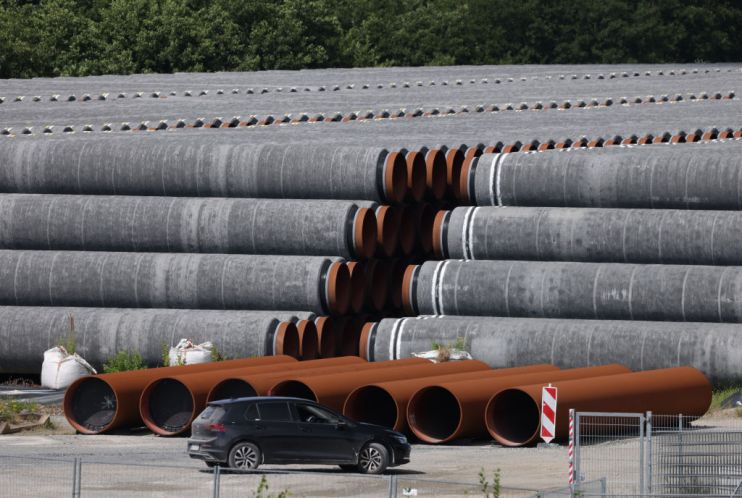Gas prices rise amid escalating Russia tensions and Nord Stream 2 uncertainty

Gas prices have surged again amid growing tensions over Russian troops at the Ukrainian border and increased uncertainty over the Nord Stream 2 pipeline.
Natural gas prices in Europe soared to €115 per megawatt hour in Europe on Monday morning, with UK prices increasing 12 per cent above 300p a therm, while US benchmark prices increased 3.77 per cent over the same window.
Prices rose to record highs in October following supply shortages and problems at the pumps, and a fresh rally could now be on the way as the diplomatic crisis between US, Russia and the rest of Europe deepens.
Last week, US Secretary of State Anthony Blinken called for Nord Stream 2 to be blocked if Russia invades Ukraine, with the Kremlin positioning over 120,000 troops near its eastern border during the past month.
The £8.4bn 759-mile pipeline has already been constructed, with initial supplies loaded into the tubes in October, but it is still waiting certification from German regulators.
The process was delayed last month due to governance concerns, with Gazprom backed Nord Stream AG now set to create a specific company to oversee the German area of the pipeline.
A decision is not expected until next year, and the verdict will have to then be approved by the European Commission.
Europe remains reliant on Russian gas
Washington previously agreed with Germany in July not to intervene in the pipeline, which it opposes, provided Russia did not use the new gas supply as a weapon.
Since then there have been severe shortages of gas supplied into Europe, with warnings of potential blackouts, disruption on the Yamal-Europe pipeline, and International Energy Agency criticism that Russia was not supplying enough gas.
There are also concerns Russia is trying to minimise Ukraine’s influence in Europe, with the new pipeline reducing the importance of pipes through Ukraine which it relies on for transit fees.
The Nord Stream 2 pipeline would effectively double Germany dependence with Russia, supplying 55 billion cubic metres via 759 miles of Baltic Sea pipes.
Europe is already reliant for 35 per cent of its natural gas supplies from Russia.
Russian premier Vladimir Putin has previously dismissed these criticisms as ‘politically motivated blather’ and blamed Europe’s woes on insufficient storage and poorly planned renewable plans.
Gazprom has said it has honoured every contract it has agreed.
During extensive virtual talks last week, Putin reportedly sought assurances from Biden that Ukraine will not be added as a NATO member.
Biden has since stopped short of threatening boots on the ground if Russia invades Ukraine, but he has warned of ‘economic consequences like you have never seen’.
This could include working with European leaders to introduce travel bans and asset freezes for Russian politicians, and reducing financial and banking links with Russia.
EU countries team up to shore up storage
Alongside the embroiling geopolitical chaos, the European Commission is set propose a system for EU countries to jointly procure gas to face off soaring energy prices across the continent.
According to Reuters, details have been shared in a document ahead of the annual European Council summit in Brussels starting this week.
Rising energy prices have left energy suppliers and customers exposed, with governments scrambling to use subsidies and tax breaks to shield consumers from high bills.
This prompted calls for an EU system of joint gas buying.
Reuters reports the Commission will propose an update to gas market rules to be published on Wednesday that would set up such a system
During the COP26 climate conference in Glasgow, the EU reiterated its belief the long-term solution to high fossil fuel prices was to transition to renewable energy.
However, the crisis is increasingly urgent with threats of blackouts this winter unless supply flows increase and more gas can be stored.